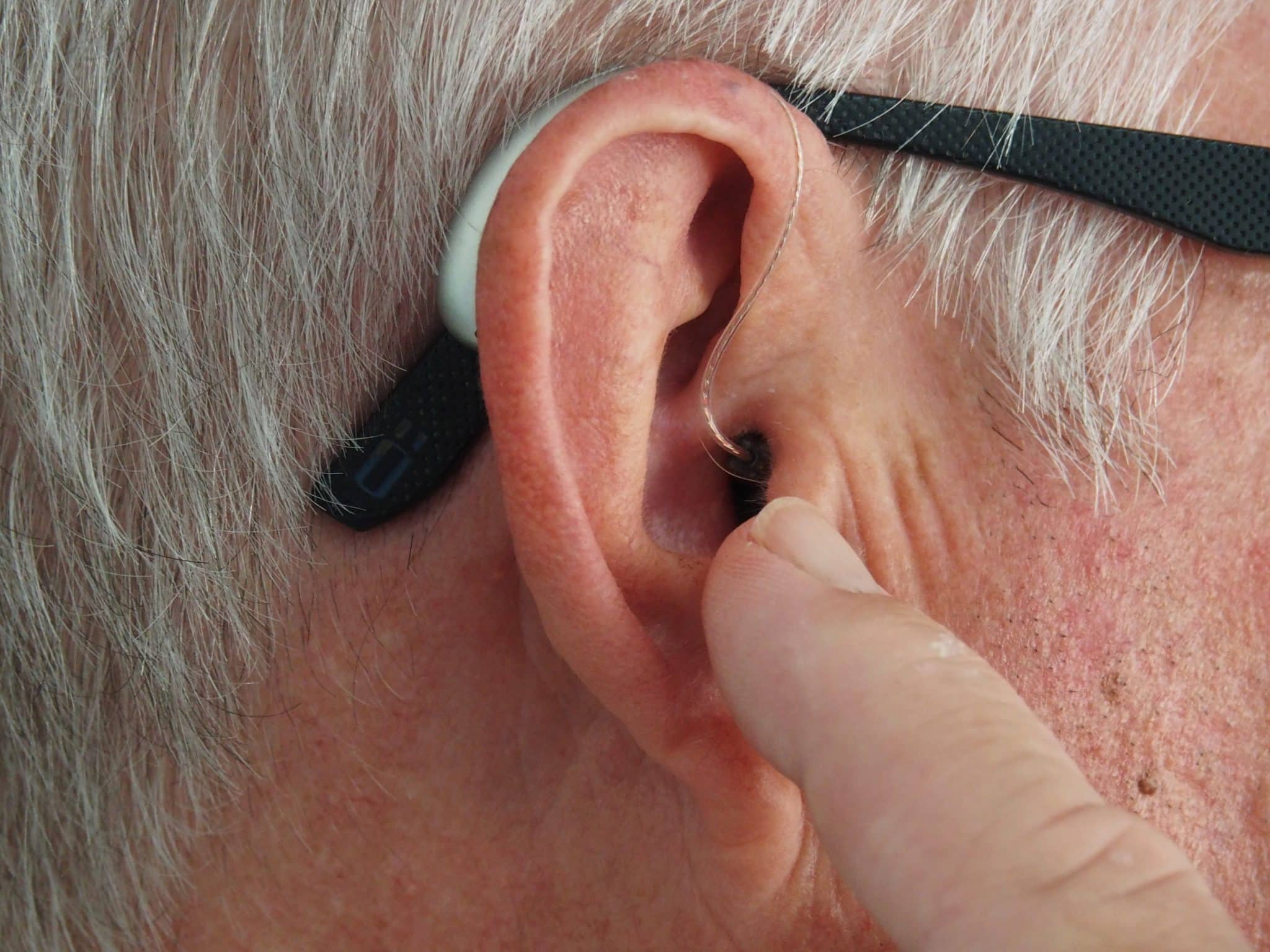Why Are You Hearing Ear Crackling Sounds?
Ever heard a soft rumbling or a faint bubbling noise inside your ear? Hearing crackling in your ear can mean a lot of things. For one, your ears might be showing early signs of infection.
Check Your Hearing Here for Free
Poorly fitting hearing aids or seasonal allergies can also create the uneasy bubbling sound you hear. But you can’t ignore that this can be a warning for something worse. That’s why it’s best to be aware of the causes, effects, and treatments of crackling in your ear.
So, What Causes That “Rice Krispie” Sound?
Imagine that your ear’s passage is a tunnel with different closed exits.  The main channel, your Eustachian tubes, are linked to other tunnels, the throat and nasal cavity. Whenever the tunnel experiences a rush of traffic, it opens different exits to relieve the congestion. The same scenario happens to your ear whenever it encounters a pressure change. This creates the bubbling sound you hear. The opening of the passage valve is a normal process that happens many times daily. Equalizing the pressure prevents infections and unpleasant sensations in your ear. However, swollen Eustachian tubes stop air and fluid from draining. This leads to the more frequent opening of the passage valve, creating a crackling sound.
The main channel, your Eustachian tubes, are linked to other tunnels, the throat and nasal cavity. Whenever the tunnel experiences a rush of traffic, it opens different exits to relieve the congestion. The same scenario happens to your ear whenever it encounters a pressure change. This creates the bubbling sound you hear. The opening of the passage valve is a normal process that happens many times daily. Equalizing the pressure prevents infections and unpleasant sensations in your ear. However, swollen Eustachian tubes stop air and fluid from draining. This leads to the more frequent opening of the passage valve, creating a crackling sound.
Common Causes of Crackling Ear Sounds
Different conditions can cause crackling in your ear. It can be as simple as allergies, or it could be an ear infection. Other common reasons you might have crackling in your ear are:
Impacted earwax :
Sound is blocked from getting through. Wax growth along the ear canal dampens sound, making it seem louder. This makes chewing and moving your jaw create crackling sounds.
Acute otitis media:
This is a middle ear infection caused by a buildup of fluid behind the eardrums. Actions like swallowing and yawning drain the fluid in your ear, but infected eustachian tubes prevent proper drainage. This creates the bubbling sounds you hear.
Eustachian tube dysfunction:
This occurs when the tubes that keep the air and fluid inside your ear become blocked. Allergies or sinus infections can cause inflammation that leads to blockage as well. When the fluid buildup gets infected, this leads to acute otitis media.
Temporomandibular joint (TMJ) disorders:
TMJ disorders can create crackling noises whenever you open your jaw or chew. This disorder can cause headaches and facial pain, and it can affect both ears as well.
Meniere’s disease:
This abnormality in the inner ear causes balance problems. The disease can cause vertigo, hearing loss, and ringing in the ear.
Is Crackling a Sign of an Ear Infection?
Without an ear exam, it’s hard to pinpoint what causes the crackling sounds you hear. Often the case is usually caused by earwax blockage or allergies. These are easily remedied by over-the-counter medicine. However, if you frequently hear crackling sounds and experience pain in the ear, an underlying issue might be the problem. For instance, hearing crackling sounds along with headaches or pain in the ear might mean you have an ear infection. If you suspect an underlying issue, having a doctor look at you is best. An ear exam will tell you the exact problem and its treatment.
How To Stop the Crackling Sound in Your Ear
Crackling in the ears doesn’t necessarily require treatment. But, if it’s starting to become uncomfortable or interfering with daily activities, there are many ways to cure your symptoms.
Decongestants:
Over-the-counter decongestants can relieve the inflammation in your eustachian tube. This is the best treatment for allergies and the flu. The crackling in your ear should disappear a couple of days after taking decongestants.
See a doctor:
You should get your ears checked immediately if you’re experiencing ear pain, fever, or nausea. Booking an ear exam with an ENT doctor is easy, and you’ll get your results within the day. Seeing a doctor can pinpoint the exact cause of the crackling in your ear. 
Antibiotics:
Doctors can also prescribe antibiotics if you have an ear infection. If left untreated, ear infections can lead to worse conditions.
Treat underlying TMJ:
Avoiding stress on the jaw and using oral splints and mouthguards can minimize TMJ disorders. Doctors may prescribe muscle relaxants to relieve jaw stiffness if those don’t suffice. TMJ surgery may also be necessary if those treatments won’t work.
Should You Worry?
Hearing an unfamiliar stirring in your ear can alarm anyone. More often than not, people will jump to the worst possible scenario. In this situation, staying calm and assessing your symptoms first is best. The simplest reason you have crackling in your ear is seasonal allergies. If so, you can let it resolve itself or take a decongestant. But, if the symptoms worsen, you should immediately see a doctor. Being cautious when the symptom arises can save you from losing your hearing.




